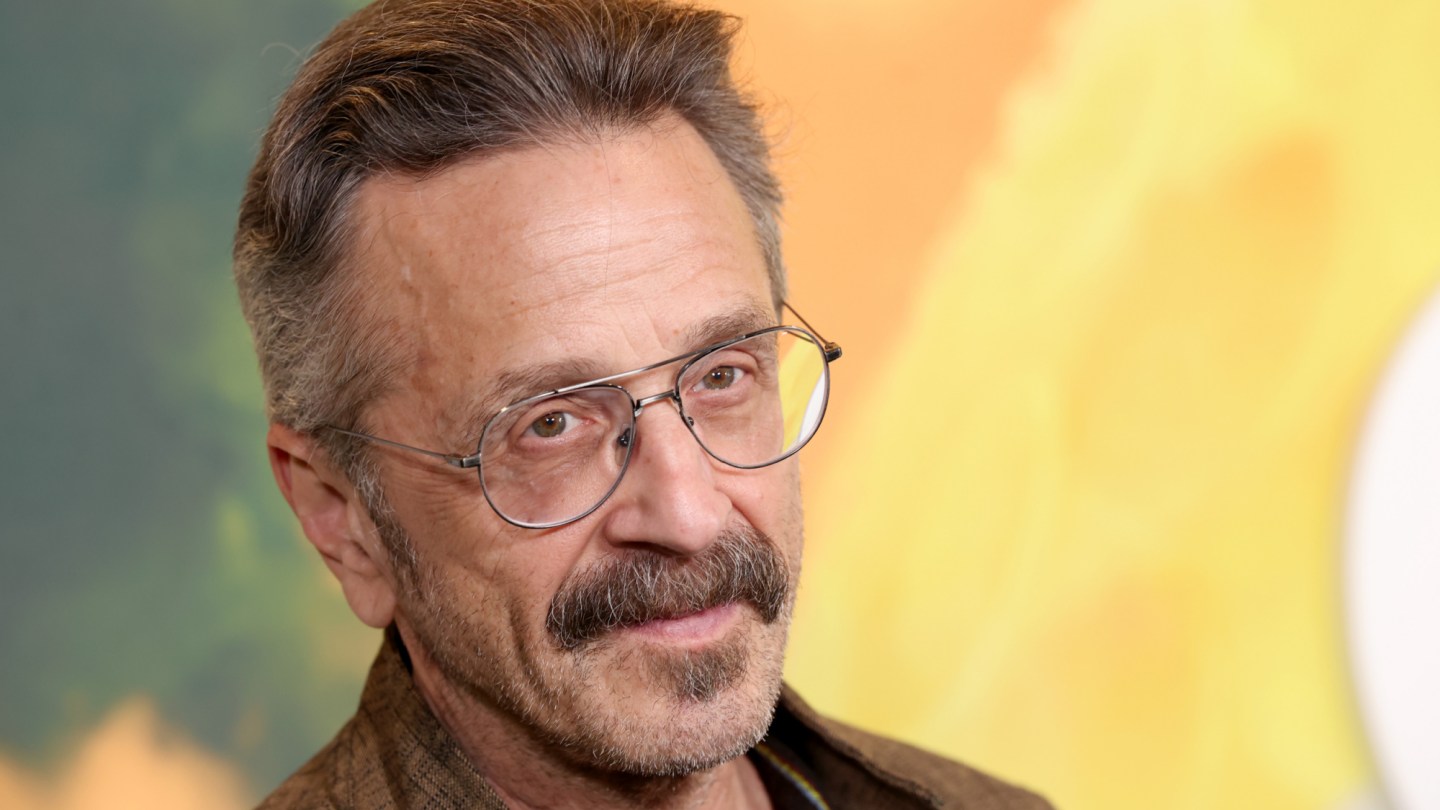
Marc Maron Interviews Barack Obama In Final Podcast Episode
Marc Maron ended his podcast Monday after 16 years with special guest Barack Obama.
This was the second appearance of the former president on WTF With Marc Maron, following his visit to Maron’s Los Angeles garage studio about 10 tens ago while he was still in office. For Monday’s interview, Maron traveled to Washington D.C. and talked to Obama about the process of moving on from a career-defining role, what to do with the responsibility attached to that and what to do with the current state of affairs in the U.S.
Maron announced the end of WTF this summer, saying he and his producing partner felt “burnt out,” after a run as one of the most streamed podcasts since it launched on Sept. 1, 2009. The episodes included many famous guests, including Obama, as well as Robin Williams and Paul McCartney, and offered a revealing look at Maron’s own life, with the host often talking about his personal life, pet peeves and grudges and relationships with the guests on the show.
“I feel like I’m sort of ready for the break. But there is a sort of fear there of what do I do now? I mean, I’m busy, right? But not unlike your job. I’m gonna compare my job to the presidency now. I’ve got a lot of people who over the last 16 years have grown to rely on me,” Maron said to Obama on Monday’s episode.
“They need something, right? There is a feeling of like, how am I going to feel, you know, less alone? How am I gonna deal with my mental this or that? And how am I gonna find a way to exist in the world that we’re living in? I mean, I’m not offering them solutions, but I am commiserating and it’s comforting,” he continued.
Obama then offered him the advice of not rushing into his next job, and taking stock of what he’s built.
“Somebody gave me advice right before I was leaving office. And it was, don’t rush into what the next thing is. Take a beat. And take some satisfaction looking backwards and saying you know what, didn’t get everything done that I wanted. Wasn’t always exactly how I planned it, but there’s a body of work there that I’m proud of,” Obama said.
Obama added that with his role, he still then had to act as the de facto Democratic leader and was still called on to give political commentary and messages of unity out of office, particularly as Donald Trump took over as his successor.
“What was unusual for me was obviously a lot of what I represented, a lot of what Michelle and I had tried to project, the values, our thinking about America. My successor seemed to represent the opposite. Not seemed, did. And so I think there was a lot of anger, lot of sadness, some fear among a big chunk of the country,” he said.
Obama then went on to describe the “warring narratives” that have always been a part of America and have led to clashes and continue to divide the country. Maron also pointed to the feeling of “hopelessness” among some on the left, including those who did not vote in the last election because of issues such as Gaza. Obama then spoke about the acceptance of “partial victory,” pointing to the example of the Affordable Care Act and how universal health care would’ve been ideal, but he didn’t have the votes.
“What a liberal democracy requires is an acceptance of partial victory,” Obama said. “This sense that things aren’t worth it unless we get everything we want, I think is either a recipe for disappointment in a democracy, but also maybe in life, or it leads to this weird cynicism where you just withdraw entirely. And that’s part of what happened to too many of our folks.”
Asked about the current state of affairs, including the National Guard in Chicago and Portland, Obama called on Americans to stand up against these actions, adding that it may involve some discomfort, with companies losing some business or universities losing grants.
“I think there is no doubt that a lot of the norms, civic habits, expectations, institutional guardrails that we had, that we took for granted for our democracy have been weakened deliberately. And I don’t think they’re destroyed, but I think they have been damaged. And they’ve been systematic about it,” Obama said.
“Just as was true during the McCarthy era and has been true throughout our history, what’s required in these situations is a few folks standing up and giving courage to other folks. And then more people stand up and kind of go ‘That’s not who we are. That’s not our idea of America. We don’t want masked folks with rifles and machine guns patrolling our streets,” he continued.
While Monday’s episode was largely centered on the conversation with Obama, Maron delivered a heartfelt goodbye to his audience in the Oct. 9 episode reflecting on his loyal audience of listeners and the relationships they’ve built over the last 16 years.
“I am feeling grateful, I’m feeling sad. It is a sense of loss, but it’s not a bad one. It’s just life. I mean, fuck. Really, really a lot of your input changed, my mind changed the way I looked at things. I really took to heart a lot of what many of you said to me in person, sometimes through emails and I really feel like you were a big part of my evolution or my evolving wisdom and perception,” Maron said. “You really helped me. Yeah. I don’t know man. I love you guys and I think you’ll be okay without me. I’m not entirely sure I’ll be okay without you, but it has been quite a ride, quite an adventure, quite a life.”
First Appeared on
Source link






